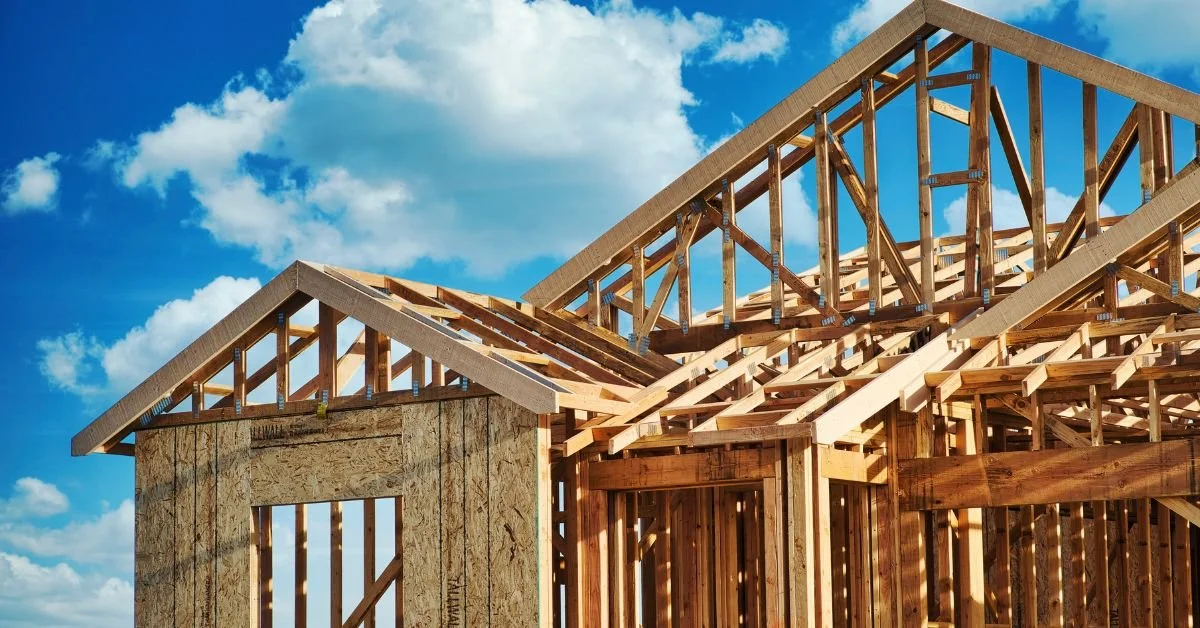Crucial Tips for Maintaining Your Home's Plumbing System
Your home's plumbing system, though often invisible and underappreciated, is an intricate network that ensures the functionality and comfort of your domestic life. It delivers clean water for daily routines, removes waste, and much more. Just like any other system in your home, it requires regular maintenance to function optimally.
Occasional plumbing problems are inevitable in every household, but proper plumbing maintenance can significantly reduce these incidents. When minor issues are addressed promptly, it prevents escalation into severe, costly damages.You can find them at Medium for comprehensive guides on this subject.
Maintaining your home's plumbing system is not as daunting as it seems. It begins with daily precautions and periodic system check-ups. Both factors will be comprehensively discussed in this article.
Daily Plumbing Maintenance
Daily routines play a substantial role in maintaining your plumbing system. They are relatively easy and inexpensive measures that anyone can implement.
Begin by watching what goes down the drain. The kitchen sink should not be a dumping ground for leftovers. Similarly, the bathroom drain is not suited for disposing of non-degradable materials like wipes or cotton buds.
Regularly inspect faucets and showerheads for leaks which can waste an enormous amount of water over time.
The Environmental Protection Agency (EPA) has reported that household leaks waste approximately 900 billion gallons of water every year in the United States.
Hot Water Usage: Be mindful of hot water usage, especially if you have a traditional water heater tank. Excess use can strain the system, leading to potential leaks and inefficiencies.
Toilet Overflow Prevention: Install toilet overflow prevention devices. These inexpensive tools can save homeowners significant cost and inconvenience associated with overflowing toilets.
Lastly, consider regular natural drain treatments to maintain a free-flowing system and avoid unnecessary clogs.
Routine System Check-ups
While daily maintenance helps, it isn't enough to keep your entire plumbing system in check. Routine professional inspection is also crucial.
A routine check-up involves inspection of pipes, fittings, drains, valves, and water heaters. Licensed plumbers have the knowledge and equipment to perform these checks accurately.
These professionals can spot small issues before they turn furious. According to insurance studies, water damage typically accounts for nearly half of all property damage claims, with an average claim around $10,000.
Preventative check-ups reduce the chances of sudden catastrophic failure and help homeowners control costs. Industry sources estimate that fixing common household water leaks can save about 10% on water bills.
Regular maintenance aids in extending the lifespan of your plumbing system while improving overall home health and safety.
Preventing Common Issues
Plumbing issues can disrupt daily life at home. Regular preventative measures are integral to avoiding such problems.
Regular Inspections
Carry out periodic assessments of your home's entire plumbing system. Checking for leaks, loose fixtures, or odd smells will help update the system's health status.
Proper Disposal Habits
Optimizing disposal habits is fundamental. Don't dispose of grease, hair, or substantial food bits in drains as they often lead to blockages.
Avoiding Harsh Chemicals
Avoid abrasive cleaners as they may corrode your pipes. Opt for enzymatic and non-corrosive cleaners instead.
Pipe Insulation
Insulating pipes are crucial, especially during colder months, to prevent freezing which can cause breakage.
Seasonal Maintenance Checklist
Each season presents unique challenges to a plumbing system. Developing seasonal maintenance strategies contributes to overall system longevity.
Spring: Outdoor Plumbing
Inspect outdoor spigots, hoses, and irrigation systems. This helps detect damage from winter and prepare for summertime usage.
Summer: Water Heater Maintenance
Maintain your water heater to ensure it is performing optimally despite high summer demands.
Fall: Preparing for Winter
Fall is ideal for insulating pipes and exterior faucets before freezing winter temperatures arrive.
Winter: Emergency Kit Preparation
Prepare an emergency kit with essentials like a hairdryer and insulation tape for potential pipe thawing in winter.
Deciphering Plumbing Mysteries
Understanding your home's plumbing system starts with becoming familiar with its blueprint. This foundational knowledge will pave the way for effective maintenance.
System Layout: Learn the routing of your water supply and waste drainage lines.
Common Issues: Recognize common plumbing problems, like leaks, slow drains, and low water pressure.
Identifying Problems: Develop a keen eye for spotting unusual occurrences in your plumbing system early on.
Becoming well-versed in these aspects of home plumbing doubles as a proactive effort to prevent disastrous scenarios. Damage control is substantially easier when problems are detected early.
Tackling Tough Repairs
The next step is understanding how to handle minor repairs. Counteracting issues promptly can prevent more severe damage and save you from costly repairs.
Dripping Faucets: Most often caused by worn-out components, which are readily available at hardware stores for replacement.
Clogged Drains: For minor clogs, a plunger often suffices. More stubborn blockages may require a plumber's snake or hand auger.
Failing Water Heater: An array of issues can disrupt your hot water supply. Checking the pilot light or thermostat may resolve simpler problems. Otherwise, professional help is advisable.
Sometimes, repairs might be beyond DIY. In these instances, knowing when to enlist the help of a professional is crucial to preserving the integrity of your plumbing system. In some cases, you might need to consider drain and sewer camera inspection services.
Identifying Plumbing Leaks
The first step to maintaining your home's plumbing system involves identifying potential leaks. Many leaks are easily overlooked, despite their potential to cause significant damage and waste substantial amounts of water.
Visible and Hidden Leaks
Visible leaks, such as dripping taps, are easy to spot. However, hidden leaks in pipes or fixtures can go unnoticed for a long time. Regularly inspect under sinks and around appliances for signs of moisture or mold.
High Utility Bills
Unusually high water bills can be indicative of plumbing leaks. Monitoring your water usage allows you to identify any unusual increases that could point towards undetected leaks.
Sound and Smell
Sounds of running water when no faucets are open, or musty smells, can also suggest a leak. Always investigate these signs promptly to prevent further complications.
Water Waste Statistics
Data Source
Average household's leaks can account for more than 10,000 gallons of water wasted every year
Research Foundation
A typical home can lose 2,000 to 20,000 gallons of water per year due to leaks
American Water Works Association
A leaky faucet that drips at the rate of one drip per second can waste more than 3,000 gallons of water per year
EPA
Insurance Coverage Inquiries
It is important to understand what your homeowner's insurance covers in relation to plumbing issues. Not all insurance policies cover the same things.
Understanding Your Policy
Your policy may cover sudden and accidental damage, but not wear and tear or damage from unresolved maintenance issues. Always read your policy carefully.
Ask Your Insurer
If you are unsure about anything in your insurance policy, it is crucial to contact your insurer. They can provide detailed information about what is covered and any potential exclusions.
Consider Additional Coverage
If your current policy doesn't cover certain plumbing issues, consider getting additional coverage. This could save you a significant amount of money in the long run.
Importance of Plumbing Maintenance
Maintaining your home's plumbing system is undoubtedly essential. It not only ensures optimum functionality, but also prolongs the system's lifespan.
Proper maintenance reduces the risk of costly repairs. It saves you from plumbing emergencies that often result in damage to your property and unnecessary expenditures.
Prevents blockages: Regular cleaning prevents foreign materials or objects from causing blockages in your pipes.
Fight leaks: Routine check-ups help identify potential leaks, allowing early fixing and preventing water wastage.
Ensures clean water: By replacing old pipes and cleaning the system, you ensure a supply of clean, safe water.
Local Plumber Advantages
No one understands local infrastructure and regulations better than local plumbers. Their proximity provides timely service thus averting potential disasters.
Their firsthand knowledge of the area's unique issues makes them more equipped to handle precise requirements. This adds significant value to their service, making them a preferable choice.
"Local plumbers provide rapid, informed solutions."
A good rapport with local plumbers ensures regular maintenance, emergency services, and expert advice when needed.
Final Thoughts
Regular plumbing system maintenance is critical to maintaining a pleasant and healthy living environment in your home. Not only does it prevent problems before they arise, but it also conservatively extends the lifespan of your entire system. Reach out to a trusted local plumber for an unparalleled tailored experience.





